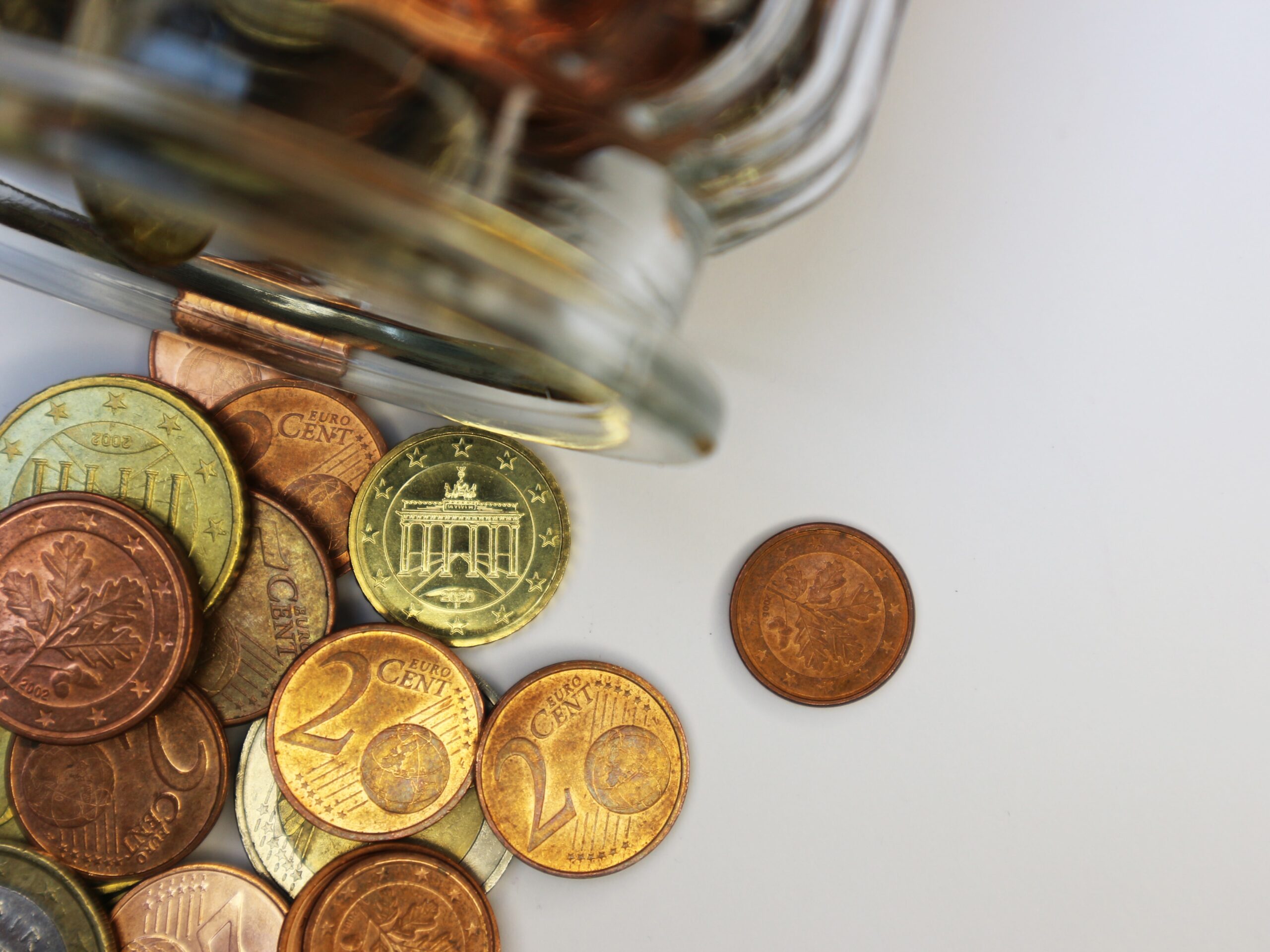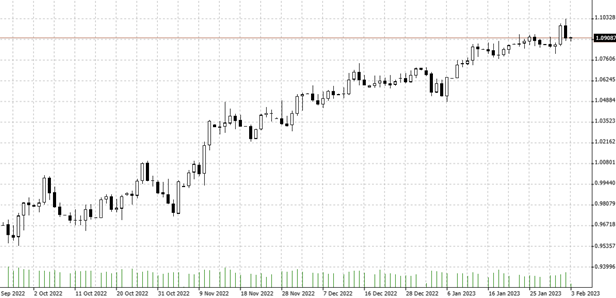

02.02.2023 – Pent-up demand in Euroland: The European Central Bank (ECB) is raising key interest rates more sharply than the Federal Reserve in the USA. And unlike its colleagues in Washington, D.C., it continues to send hawkish signals. Ergo, the euro continues to recover against the dollar.
Yesterday was the day: The ECB raised key interest rates by 0.5 percentage points. With the fifth interest rate hike in a row, the monetary guardians want to fight inflation and suck capital back from the market. The European rate move is above the Fed’s previously announced 0.25 percent. And while the U.S. Federal Reserve just struck much softer tones than before, the ECB held out the prospect of another 0.5 percentage point rate hike for its March meeting. And thus the euro continues its recovery, here the daily chart.

Currently, the main refinancing rate thus stands at 3 percent. The deposit rate climbs to 2.5 percent; last year, this main rate was still negative. The overnight lending cost, the marginal lending rate, is picking up to 3.25 percent.
It continues like this
It is true that inflation in the euro zone had fallen to 8.5 percent in January as a result of the recent drop in energy prices. But it was still far from the 2 percent target. Moreover, core inflation – that is, inflation that is cleansed of the actual price drivers of energy and food – is at 5.2 percent. And that is the highest level since the introduction of the euro.
The ECB has now confirmed that there will be no change for the time being. ECB chief Christine Lagarde had already ruled out a departure from the course of interest rate hikes at the World Economic Forum in Davos. Italy, in particular, is again calling for lower interest rates in order to be able to borrow more cheaply. In any case, Goldman Sachs sees another interest rate hike in Euroland of 0.5 percentage points in March; but only 0.25 percentage points in May.
Unchanged signals
BNP Paribas Germany pointed out that nothing has changed in the choice of words on rate hikes at a steady pace. We mean: quite differently than with the Fed before. The Fed had been softer recently, after having found clear words and steps to fight inflation last fall, which pushed the euro below parity. Thus, the euro could continue its recovery for the time being if there is no change in the global investment situation. An escalation in the Ukraine war, for example, could quickly make the dollar – together with the Swiss franc – more expensive again as the number one flight currency. The conclusion from all this is that if nothing changes in the current monetary policy trend, the euro is likely to continue to catch up with the greenback. Bernstein Bank wishes successful trades and investments!
__________________________________________________________________________________________
The content of this publication is for general information purposes only. In this context, it is neither an individual investment recommendation or advice nor an offer to purchase or sell securities or other financial products. The content in question and all the information contained therein do not in any way replace individual investor- or investment-oriented advice. No reliable forecast or indication for the future is possible with respect to any presentation or information on the present or past performance of the relevant underlying assets. All information and data presented in this publication are based on reliable sources. However, Bernstein Bank does not guarantee that the information and data contained in this publication is up-to-date, correct and complete. Securities traded on the financial markets are subject to price fluctuations. A contract for difference (CFD) is also a financial instrument with leverage effect. Against this backdrop, CFD trading involves a high risk up to the point of total loss and may not be suitable for all investors. Therefore, make sure that you have fully understood all the correlating risks. If necessary, ask for independent advice. CFDs are complex instruments and are associated with the high risk of losing money quickly because of the leverage effect. 68% of retail investor accounts lose money trading CFD with this provider. You should consider whether you understand how CFD work and whether you can afford to take the high risk of losing your money.7
